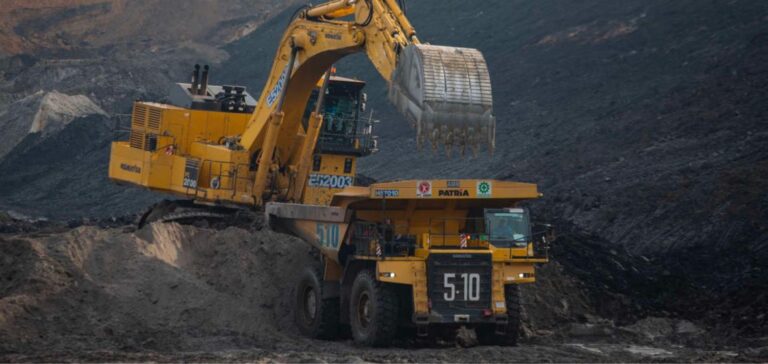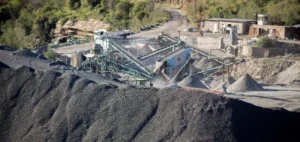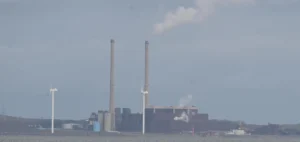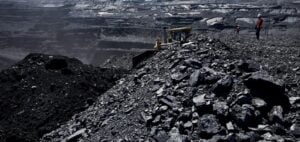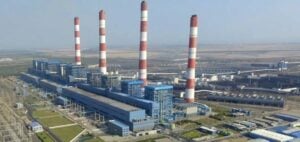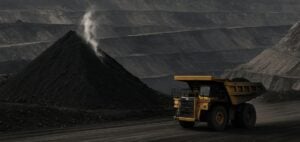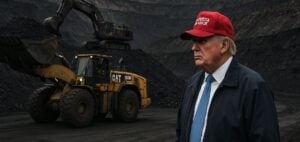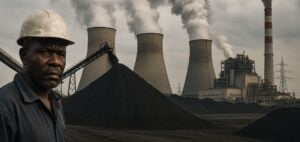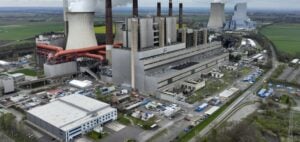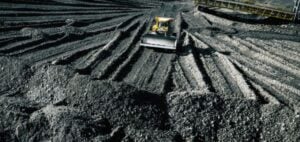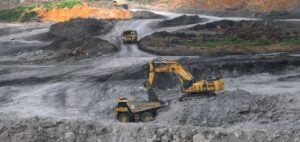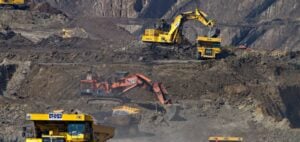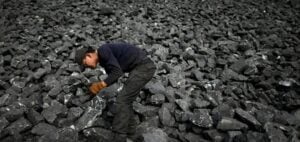Chase Hays is “torn.” After seeing floods ravage his hamlet in the Appalachian mountains, he filed a lawsuit against the mine that overlooks it, but the 34-year-old American doesn’t want to be perceived as an “enemy” of coal.
Like him, Eastern Kentuckians are struggling to question an industry that has long provided the region’s only high-paying jobs. And, with the mid-term elections approaching, few candidates dare to talk to them about climate change.
Yet Kentucky has been devastated recently by extreme events: in December, unprecedented tornadoes killed 80 people in the west, and in late July, unprecedentedly heavy rains swept away 40 residents in the east.
Standing at the bottom of a secluded valley on the edge of a small creek, Chase Hays had never seen the water flow so fast. He barely had time to cut a fence to escape with his family, when the current had washed away his porch, an above-ground pool, a pig… and flooded the foundation of his prefabricated house.
Even if he still can’t live there, this father at home considers himself “one of the luckiest” of the place called “River Caney”, where about twenty houses have been totally destroyed and two women washed away. Moreover, he was insured, unlike his neighbors, some of whom are still sleeping in tents, with no prospect of finding a roof over their heads before winter.
“For them,” he decided to file a lawsuit against the mining company that extracts coal above the hamlet. Chase Hays is convinced that one of his reservoirs failed when the rainfall intensified. “The explosions were much too strong, it must have cracked the basin,” says this man with a bushy beard as he received AFP in his still muddy garden, cluttered with piles of soggy glass wool.
– Beheading the mountains –
However, this man, who comes from a family of miners, is careful not to generalize: “What happened here was due to a maintenance problem, but I can’t say that the whole industry is at fault. About 50 neighbors have joined his complaint, including Christy White, a 57-year-old woman whose dapper home is now a damp shell.
This dynamic grandmother, whose voice breaks at the mention of the flood, also blames the maintenance of the local mine but goes a little further. “If you blow up the earth, drill down, cut its corners, something will eventually happen, it’s common sense…”
In recent years, mining companies in Appalachia have developed a mining technique that involves cutting off the tops of mountains to gain easier access to coal seams.
Despite the controversies, its impact on flooding remains “uncertain,” notes William Haneberg, a geologist at the University of Kentucky. This technique “exposes the rocks, removing the trees and any
vegetation,” he says. On the other hand, rubble is dumped in the valleys, “which flattens the ground and could decrease the intensity of flooding.”
On the other hand, “there is a strong consensus” among scientists to attribute climate change to the burning of fossil fuels, Haneberg continued. “In this way, coal mines have a clear responsibility for recent events.”
– “Hostility” –
Yet this obvious fact is hard to take in Kentucky, which still has 20% of the active coal mines in the United States.
Chase Hays is well aware of the climate change studies. “But it’s not a good topic of conversation around here, because without coal, this place is going to fall apart…”
Luke Glaser, an unaffiliated city councilor in nearby Hazard, who has been heavily involved in the relief effort, confirms that there is “a hostility to climate initiatives” locally.
“Appalachians are proud that their work has provided energy to the country for decades and feel like their jobs are under attack but also their values,” says this candidate for re-election.
The state switched to the Republican camp in the 1990s “in part because of energy issues,” says Steve Voss, professor of political science at the University of Kentucky. Since then, candidates from both parties have been careful to “portray themselves as coal-friendly,” although some Democrats are starting to talk about climate, he says.
Whatever they may say, “I don’t think the floods will have an impact” on the November election, Chase Hays believes. In this poor region of the state, “one feels forgotten, despised and, unless
Unless someone takes radical action, opinions will not change,” he prophesies.
As for Christy White, an avid fan of former President Donald Trump, she’s too busy cleaning up what’s left of her house to have given any thought to her ballot. As she sorts through her belongings, she hints that she doubts climate change is the cause of her misfortune. “I think it’s God’s will. He wants to prepare us for what comes next.”

